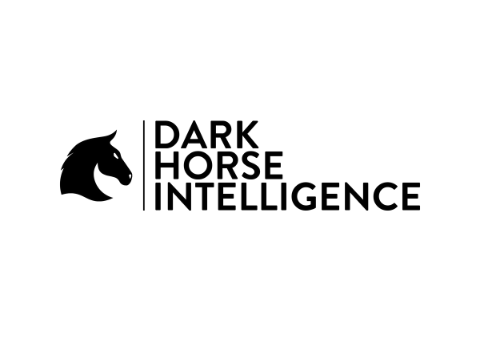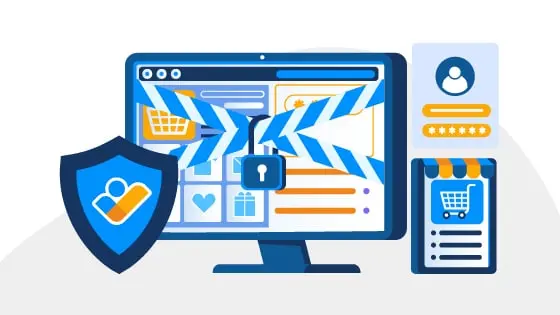

Retailers are consistently vulnerable to fraud and theft which can be crippling for establishments of all sizes. Chargeback fraud contributes greatly to the losses businesses incur over the course of their lifetime and are rapidly becoming more problematic. In fact, according to a study by LexisNexis, overall retail frauds have tripled since 2017.
The rise in online shopping trends has also ushered in new sets of malicious threats for retailers. That said, the key to staying ahead of chargeback lies in an extensive understanding of why they occur and how you can prevent them. Here’s what you need to know:
What Is Chargeback Fraud?
Chargeback fraud occurs when a customer purchases an item online using a credit card and requests a chargeback from their card-issuing bank after receiving the product or services. If the chargeback gets approved, the bank cancels the transaction, and the consumer gets a full refund.
When chargebacks happen, the merchant is held accountable irrespective of what verification measures they had in place for a transaction.
According to a report, US merchants will lose approximately $33 billion in chargeback or payment card frauds in 2020. Another study warns that merchants will lose approximately $3.36 for every instance of chargeback fraud. This is because retailers and merchants are liable to additional charges than the initial sales cost after a chargeback.
They will also lose on:
- The cost of products already shipped
- Additional fees charged by the bank to cover chargeback process fee
- Loss of processing payments in case chargebacks become a frequent occurrence
What Is the Difference between Chargeback Fraud Types?
When a chargeback is processed by the financial institution, the merchant is issued a reason code to help them understand the intent for chargeback. While the list of chargeback codes is long and not the most explanatory, banks really only need to understand the different types of chargebacks.
The three categories are as follows:
Merchant Error or Negligence
Chargebacks were instituted on the basis of protecting the consumer from fraudulent businesses. Oddly enough, merchants themselves are largely to blame for many cases of chargeback. With the introduction of chargebacks and consumer rights, fraudulent businesses began to dissipate.
Today, merchants are found responsible in cases of innocent mistakes and oversights such setup, transaction data, and order processing. That said, merchant error accounts for only 20-40% of chargeback cases meaning chargeback fraud accounts for 60-80% of cases.
Friendly Fraud
Friendly fraud occurs when a consumer circumvents interaction with the retailer to get a refund. The consumer contacts their card-issuing bank and files for a chargeback falsely claiming not to have received a product or being a victim of identity theft.
For example, a customer may order an electric kettle online and sometime later contact their bank to cancel the transaction, filing for a chargeback. The customer may use no delivery, the item being faulty or item not delivered as one of many excuses to conduct a friendly chargeback fraud.
True Fraud (Hostile)
Hostile or true fraud is also known as identity theft. It occurs when you, as a business, accept a payment from a card that has been stolen. The holder of the card disputes the purchase, which results in the closure of that account by the bank. The bank then issues a new account number and card to the consumer.
For example, you are a restaurant that processed a payment on a stolen card. The original cardholder contacts their bank with a complaint that they never availed your services or that the card has been stolen. In this case, the bank will cancel the transaction, close that account, and give a new secure account and credit or debit card to their customer for future security.
Chargeback Fraud Repercussions
Keeping in mind the imminent threat of chargeback frauds lurking over your head as a merchant, you must protect yourself against credit card chargebacks and other chargeback scams.
In the worst-case scenario where your business surpasses the threshold set by your bank for chargebacks, the bank may close your merchant account and black-list you. Even if the bank does not close your account, they may force you to operate on a high-risk merchant account with higher processing fees.
A chargeback fee is a charge imposed by the banks to recover incurred expenses while handing chargeback disputes on your account. This fee may range between $20 and $100, but with customer acquisition and operation costs, you may lose up to 3 times the amount of transaction.
Here are the four chargeback costs that most merchants are unaware of:
Transaction fee
The bank charges up to 4% of the transaction value to process a payment. In case of a chargeback, you end up losing the transaction money plus that additional fee you paid to the payment processing authority.
Operational Costs
You lose the cost that goes into the process, packing, and shipping the orders. This cost usually makes up 20 percent of the merchant’s revenue lost due to chargeback scams.
Marketing and Acquisition fee
Of course, sales do not generate itself; you have to invest in marketing campaigns to acquire customers. Merchants spend up to 40 percent of their revenue on marketing. With chargeback frauds, all that money and effort go waste.
Chargeback Penalty
Finally, with chargebacks come penalty fees applied by your bank, making up to 40 percent of the transaction’s value.
Hostile Chargeback Scams to Watch For
There are several forms of hostile chargeback scams. You may think of them as deceptions created by the customers to their banks while filing chargebacks. These are:
- The customer may claim that the product they received is not as described or defective.
- The cardholder may claim that they never authorized a transaction, or their card has been lost or stolen.
- The consumer may dispute that the pricing and shipping cost you mentioned were deceptive, or they never received the item. Hence they are filing for a chargeback.
- One of the common chargeback scams is confusing subscription terms. The customer claims they did not understand, or the company misled them about the subscription charges. This is a very common credit card chargeback fraud within the health and fitness industry.
How Can Merchants Protect Themselves
The chargeback frauds and associated problems mentioned above are daunting. However, it is not all doom and gloom for the merchants. As a retailer, you can still protect yourself, and Credit Card Chargeback Merchant Rights protects you in such instances.
Whenever a bank files for a chargeback that appears valid to them, you always get the right to contest it. You can follow the common process and take the issue to arbitration. Disputing chargebacks give you a fighting chance to recover your lost revenue.
To effectively dispute chargebacks, you must invest in identity authentication solutions. These solutions can help you in identifying fraudsters before they can cause financial problems for your business.
An adequate identity authentication solution will help you flag any stolen or counterfeit IDs. Plus, you will have proof of ID verification when the transaction took place. These will help you rectify chargeback scams and catch the imposters in real-time.
Let the Experts Back You Up
If you are a retail merchant wondering where to begin looking for an identity authentication solution – Intellicheck offers a diverse set of solutions to help you avoid and contest credit card chargeback frauds. With Intellicheck, businesses can protect themselves from both in-person and online transactions to prevent chargeback frauds.
Intellicheck solutions are cost-effective, time-saving, and easy to use. You can integrate the ID authentication solution into your existing POS system to avoid future chargeback scams with total peace of mind.







